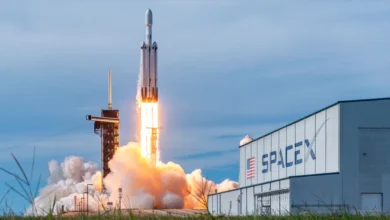
Job Subsidies: Corporate Rich Are Indeed Getting Richer
Database Reveals Big-Business Dominance of Job Subsidies
Washington, D.C. – Three-quarters of all the economic development dollars awarded and disclosed by state and local governments throughout the United States have gone to just 965 large corporations.
Some of these big recipients, such as Boeing (at more than $13 billion) are well-known for aggressively seeking tax breaks by pitting states against each other for jobs. However, 16 other companies, many less intuitive, have received awards totaling more than $1 billion, often to subsidiaries with names bearing no similarity to their corporate parents.
Warren Buffett’s Berkshire Hathaway, for example, has received 310 subsidy awards totaling $1.06 billion to subsidiaries with names such as Geico, NetJets, Nebraska Furniture Mart, General Re Corporation, Lubrizol Advanced Materials, and Webb Wheel Products.
These are the key findings in Subsidizing the Corporate One Percent, a report published today by Good Jobs First summarizing information brought to light by an extensive enhancement of GJF’s Subsidy Tracker database.
Good Jobs First is a non-profit, non-partisan research center in Washington, DC focusing on economic development accountability. The report and the database can be found at http://www.goodjobsfirst.org/
“Subsidy Tracker can now demonstrate that a dominant share of the subsidies awarded by state and local governments in the name of job creation is ending up in the hands of a limited group of companies which can be regarded as the Corporate One Percent,” said Good Jobs First Research Director Philip Mattera, who created the original database and the newly released version 2.0.
Subsidy Tracker now contains parent-subsidiary linkages for more than 25,000 entries with aggregate values of $110 billion, or 75 percent of the total dollar value of all the entries in the Tracker universe. Those entries have been connected to 965 parent companies drawn from the Fortune 500, the Forbes list of the largest private companies and similar lists. The total of about 1,300 corporations checked for Tracker matches represent a good proxy for big business.
The Fortune 500 alone account for more than 16,000 subsidy awards worth $63 billion, or about 43 percent of total Tracker dollars.
“In our Megadeals study last year, we found that since 2008, there has been a spike in the number and cost of gold-plated deals, even though overall deal flow remains depressed,” said Good Jobs First Executive Director Greg LeRoy. “It looks like the corporate rich are getting richer at the expense of public goods that benefit all employers.”
Subsidy Tracker 2.0 shows for the first time which companies have received the most cumulative awards, both in dollar terms and numbers of awards. After Boeing, whose $13 billion total reflects the giant deals it has gotten in Washington and South Carolina as well as more than 130 smaller deals around the country, the others at the top of the cumulative subsidy dollar list are: Alcoa ($5.6 billion), Intel ($3.9 billion), General Motors ($3.5 billion) and Ford Motor ($2.5 billion). A total of 17 companies have received cumulative subsidy awards worth more than $1 billion; 182 have received awards of $100 million or more.
The company with the largest number of awards is Dow Chemical, with 416. Following it are Berkshire Hathaway (310), General Motors (307), Wal-Mart Stores (261), General Electric (255), Walgreen (225) and FedEx (222). Forty-eight companies have received more than 100 individual awards. The award numbers include some for which no dollar amount has been disclosed (reflecting the inconsistent quality of state and local disclosure).
Among the 965 parents identified as subsidy recipients, the average number of awards is 26 and the average total dollar amount (from awards for which this information is disclosed) is $102 million.
Given the decline of manufacturing in the United States, it is interesting that the list of top parent companies is dominated by industrial firms. Of the ten biggest recipients, only one – Cerner – is primarily a service provider. As for specific industries, auto is well represented, with GM, Ford, Fiat (which now owns Chrysler) and Nissan in the top ten. Toyota is no. 16 and Volkswagen is no. 22. Other heavy industries represented include aerospace (Boeing, no.1), semiconductors (Intel, no.3), petroleum (Royal Dutch Shell, no.7), chemicals (Dow, no.12) and steel (ArcelorMittal, no.13).
Also significant is the presence of foreign-based corporations. There are three in the top ten (Fiat, Royal Dutch Shell and Nissan) and another five in the next 15. Since private equity firms are treated as big-business parents, the list includes several of those firms. The most-subsidized is Silver Lake Partners, which now controls the computer company Dell and thus has Dell’s megadeals in North Carolina and Tennessee attributed to it.
The list of most-subsidized parent companies overlaps considerably with the companies in the Megadeals report Good Jobs First issued last June. Of the 100 most-subsidized parent companies, 89 received at least one megadeal (worth $75 million or more).
“Both our new findings and our Megadeals study clearly suggest a ‘corporate rich getting richer’ trend,” LeRoy added.



